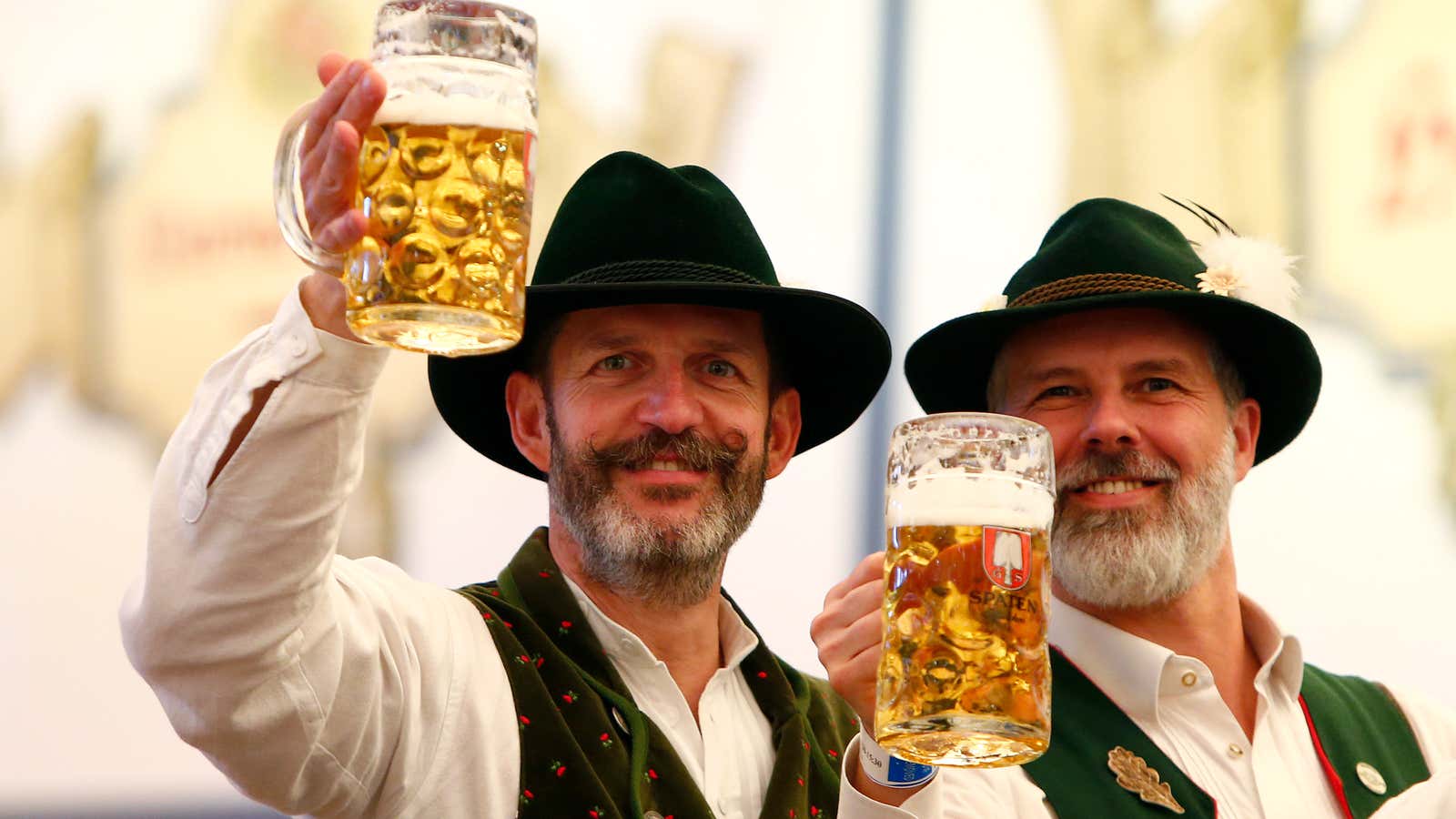They may have the reputation of being savers and worriers, but a survey this week from the EU Commission on Justice, Education, Employment, and Health, reveals that Germans are feeling happier about themselves than almost all other European Union citizens.
The report, based on interviews with 28,031 people across the EU in December last year, found that nine out of 10 Germans answered yes to the question “In general, I consider myself a happy person”—quite some way above the EU average of 83%.
Germany’s good mood is perhaps not that surprising in light of its juggernaut economy and low unemployment. Last week, the International Monetary Fund raised its economic-growth prediction for Germany to 2.5% for 2018—and last year, the country enjoyed its best year since 2011, expanding by 2.2%.
But the wealthy country is experiencing a dangerously widening gap between its rich and poor—over 90% of German respondents to the survey said the income divide in their country is too large.
The German Institute for Economic Research found that the wealthiest 10% of households saw their real incomes grow by 27% between 1991 and 2014, while the poorest households suffered an 8% income decline. It said 10% of the population owned 60% of the country’s wealth.
The aim of the Eurobarometer survey was to assess how European’s feel about fairness in their countries. It is not just Germans who are concerned about the wealth gap: Over 80% of EU citizens feel it’s a problem and think governments need to take steps to tackle the income disparity. Also, only less than half of respondents believe that opportunities have become more equal compared to 30 years ago.
However, Germans are not the happiest people in Europe: That crown goes to Ireland and Denmark, where a whopping 97% and 96% respectively consider themselves content.
